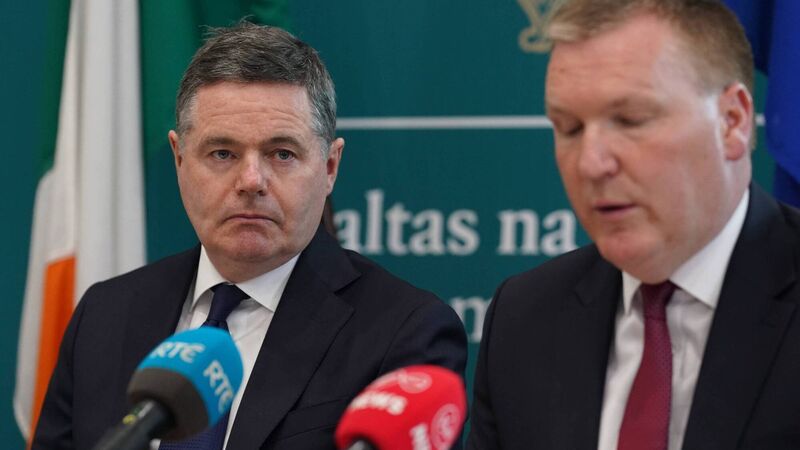Looming election may tempt Michael McGrath and Paschal Donohoe to spend

Public Expenditure Minister Paschal Donohoe and Finance Minister Michael McGrath.
Facing potentially their last budget as Government colleagues, with a war chest the envy of other European nations, Finance Minister Michael McGrath and Public Expenditure Minister Paschal Donohoe may have to resist the temptation to spend freely despite an election looming.
Governments loosening the purse strings and dropping some cash going into an election is nothing new in politics but such moves would run contrary to the conservative tone set by the pair of ministers over the last few years particularly when it comes to the area of corporation tax receipts which have been bolstering the public finances.














